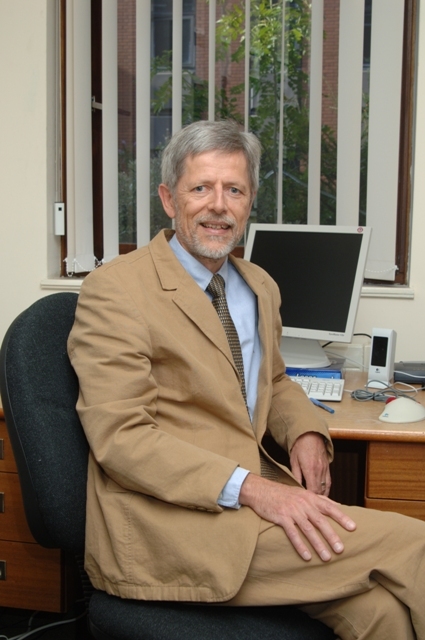New research has revealed a large and previously ‘invisible’ group of autistic adults who are cared for at home by hard-pressed parents.
 In what has been billed as Britain’s first adult autism survey, the University of Leicester has shown that many adults with profound learning disabilities, most living in private households, have autism.
In what has been billed as Britain’s first adult autism survey, the University of Leicester has shown that many adults with profound learning disabilities, most living in private households, have autism.
Leading the research was Dr Terry Brugha, professor of Psychiatry at the University (pictured), who said: “Our finding, that about 60% of men with profound learning disabilities and 43% of women with profound learning disabilities have autism, has never been shown previously.”
The survey also looked at adults with the less extreme condition of severe learning disabilities. Here, it found that 42% of men and 29% of women living with family members and in other private households have autism.
Dr Brugha highlighted the strain on parents who carry the responsibility of constant care. He said they “shoulder a considerable burden”.
The study combines new data with figures compiled in 2007, and is entitled Estimating the Prevalence of Autism Spectrum Conditions in Adults: Extending the 2007 Adult Psychiatric Morbidity Survey. Dr Brugha said: “Taken together with the 2007 survey findings, the research reveals that most adults with autism live in private households and that before these two surveys they were largely invisible.”
Sally-Ann Cooper, professor of Learning Disabilities at the University of Glasgow, who contributed to the study, said: “Until now routine statistics have not been gathered on the numbers of people with learning disabilities who also have autism, leaving this as a hidden problem. Our study clearly shows that the more severe to profound an adult’s learning disability is, the more likely they will be found to have autism if actually assessed.”
It is hoped that the study’s findings will be used by agencies planning services for adults with autism and learning difficulties. In March 2010 the British Government published a national strategy for autism and guidance for the condition with a view to improving the quality of services provided to autistic adults in England.
Dr Brugha said: “Such improvements can only be achieved if the number of people with recognized and unrecognized autism is quantified.” He pointed to the need to train staff to work with autistic adults and to repeat the studies in future years in order to make sure that the national strategy is working effectively.
The study was funded by the National Health Service Information Centre on behalf of the Department of Health, England and involved a survey of adults from learning disability registers in Leicestershire, Lambeth and Sheffield between August 2010 and April 2011.
Published: 31 January 2012















